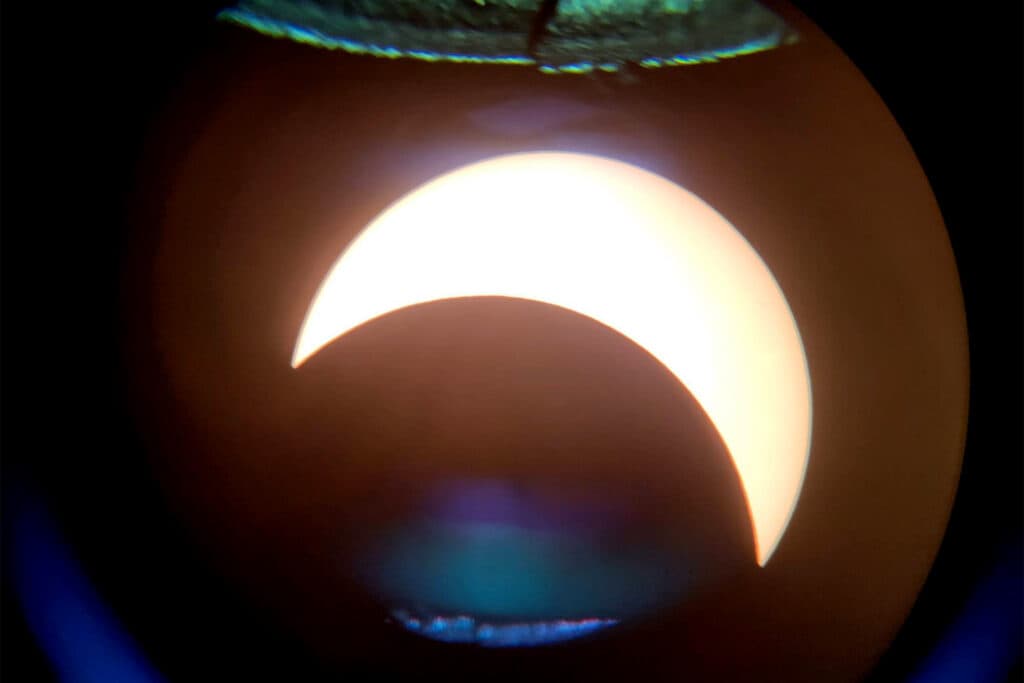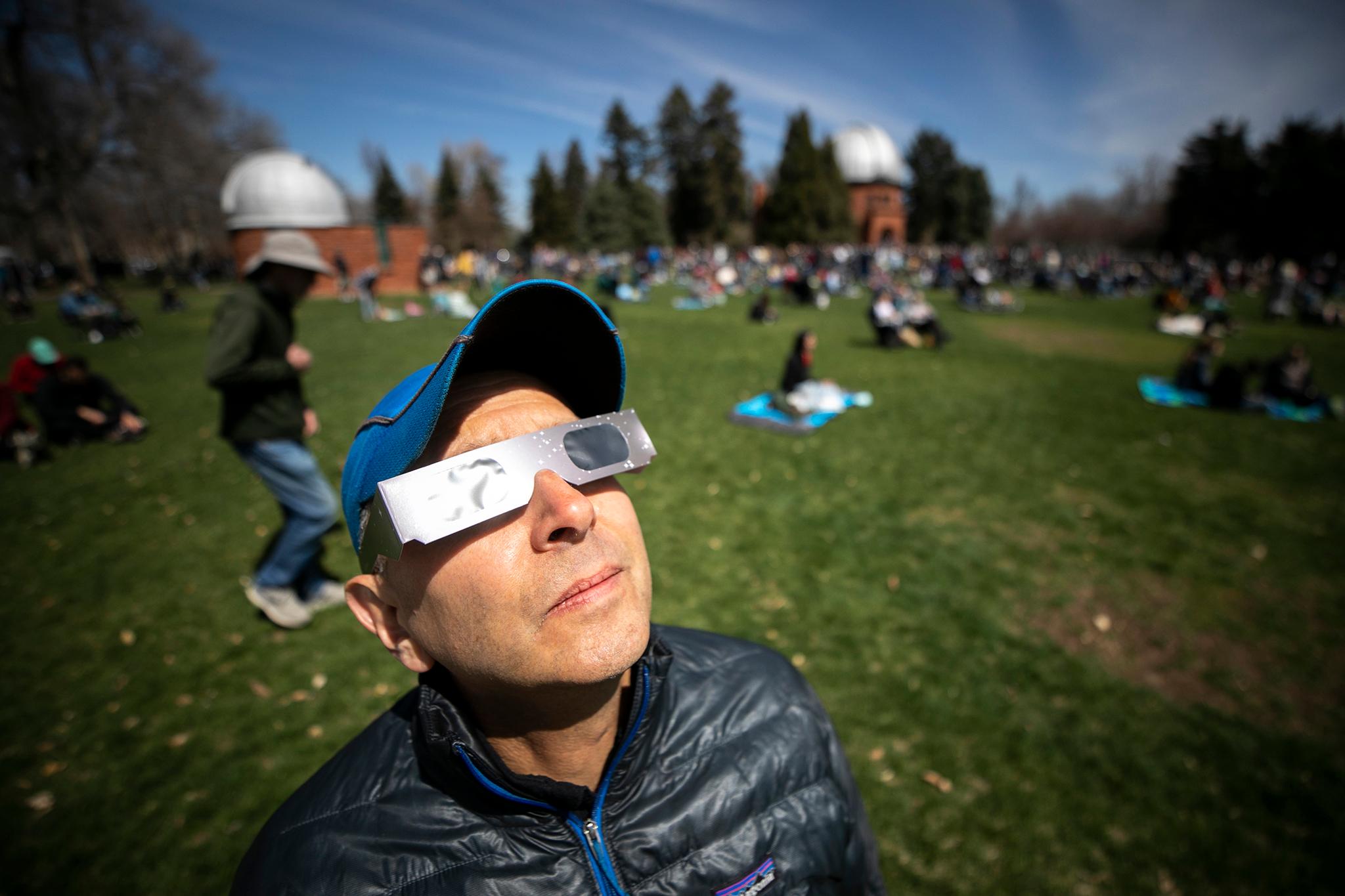Denver is hundreds of miles away from prime eclipse views. But that isn’t stopping people from making an attempt to peek at the blocked sun.
On the University of Denver's Campus Green, between Asbury and Evans avenues, a group of students set up several pieces of equipment and invited their peers to temporarily abandon their scholarly endeavors to take a look at the rare occurrence.
David Swartz, the president of the university’s Society of Physics Students club, said it will be many years before Denverites can view an eclipse, so he was encouraging his peers to go as far as skipping class to take advantage of this opportunity.
“Sometimes college is about living and I think one class can subside to be able to see an eclipse and enjoy it, and sometimes an eclipse might be the thing that sparks something in someone to learn more about the universe in physics,” Swartz said.
Just 20 minutes after the club set up in the quad, a line had formed outside his booth. Student Ivan Rosales was one of the lucky ones and had class canceled for the occasion.
“I want to experience this phenomenon with my friends,” Rosales said. “I saw the telescope and I was like, oh, let's go check it out. Let's go see how it looks like on the telescope.”
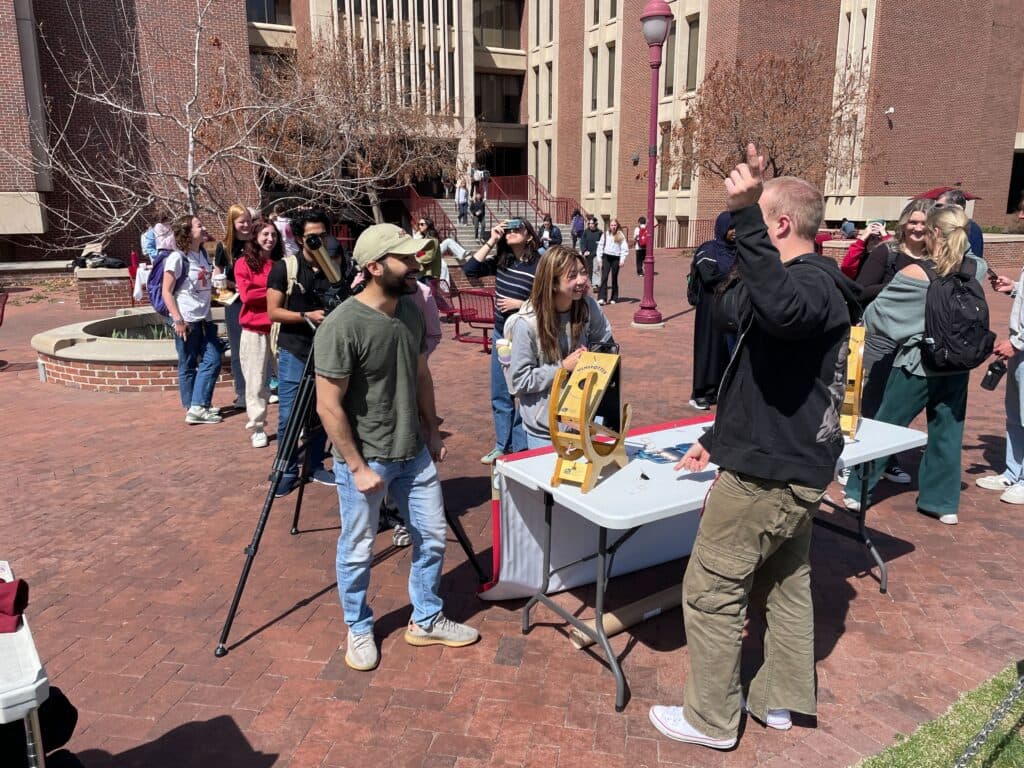
Meanwhile, less than a mile away, hundreds gathered at Observatory Park, the site of DU’s Chamberlin Observatory.
The crowd included Dave Catlin, a longtime member of the Denver Astronomical Society. He recently rejoined the society’s ranks after an eight-year stint living out of state. Catlin brought his own telescope to the park and invited people to line up to get a glimpse of the eclipse and helped explain exactly what they were seeing.
For Catlin, he was just excited to be back in Denver observing an eclipse, an event that he thinks appeals to our collective genetic memory.
“I think it's just something in our genetics or something. You look all the way back through history and people have feared 'em, they don't understand them and it's kind of cool to see it get dark in the middle of the day,” he said.
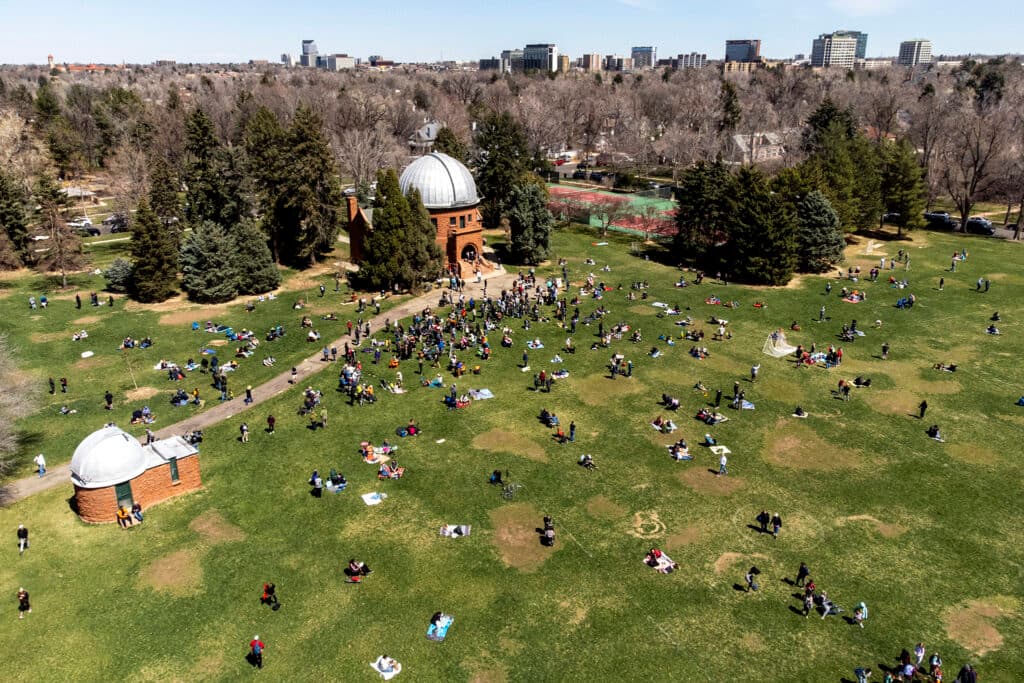
The lawn at Observatory Park. Kevin J. Beaty/Denverite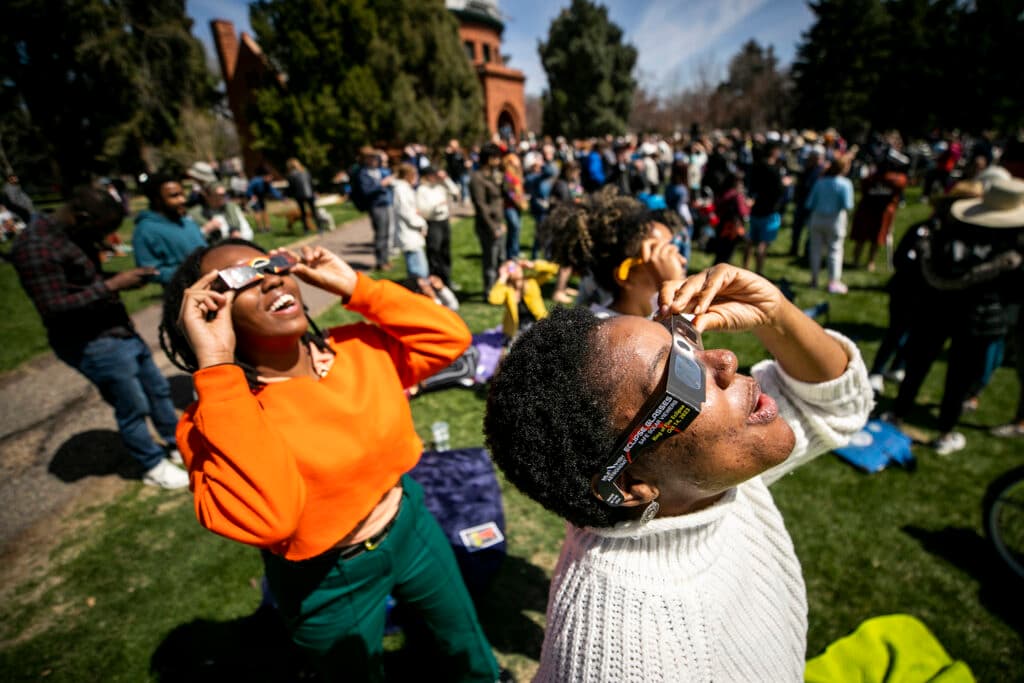
Ahyanni McCray (left) and Sydney Odion-Smith stare at the sun. Kevin J. Beaty/Denverite
On the opposite side of the spectrum, Nancy Brown described her and her family as new eclipse chasers. She pulled her two sons out of school to witness the event.
“It's just important to see our natural world and see such a great event as far as seeing the eclipse,” Brown said. “And we would've loved to have traveled to it, but we didn't. So this is the next best thing, at least to get to experience something so magnificent.”
Unfortunately for those who missed the eclipse, the next visible partial eclipse here won't come until 2028 -- and that one won't be quite as exciting, as only a small part of the sun will be eclipsed, at sunrise. Then, in 2029, there'll be a partial eclipse a bit like today's on the morning January 14, 2029.
The next total solar eclipse visible here will be on Aug. 12, 2045 and the path of totality is projected to pass right over Colorado Springs, Pueblo and Grand Junction.
